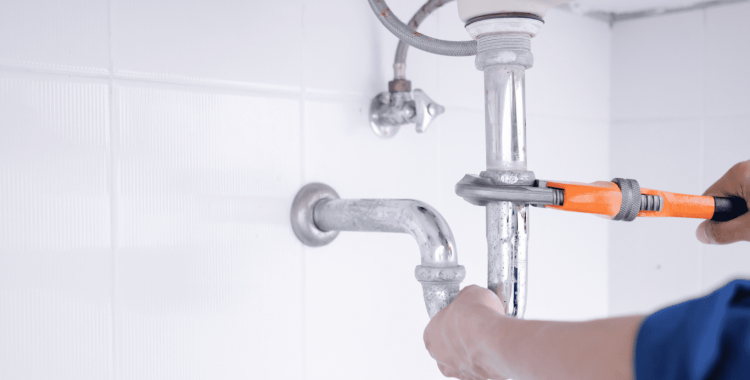The Cost of Ignoring Water Damage in Commercial Properties

Water damage can lurk within the walls of commercial properties. Often underestimated, its implications can be financially devastating if left unchecked. Whether it’s a leaking roof, burst pipes, or gradual seepage, ignoring water damage can lead to a cascade of problems that not only compromise the structural integrity of the building but also impact the bottom line of businesses. In this blog post, we’ll delve into the risks and associated financial implications of neglecting water damage in commercial properties.
Structural Damage
Water has a knack for finding its way into every nook and cranny of a building. Over time, it can weaken the foundation, rot wooden structures, and corrode metal supports. The longer water damage goes unaddressed, the more extensive the structural damage becomes. Repairing compromised structural elements can be exorbitantly expensive and, in severe cases, may even necessitate the demolition and reconstruction of entire sections of the property.
Mold & Mildew Infestation
One of the most severe consequences of water damage is the proliferation of mold and mildew. These microscopic organisms thrive in damp, humid environments and can quickly colonize walls, ceilings, and floors. Not only do they compromise indoor air quality, leading to respiratory problems among occupants, but they also pose a significant liability risk for businesses. Legal battles stemming from mold-related health issues can result in hefty settlements and tarnish the reputation of the property owner.
Decreased Property Value
Water damage can significantly diminish the value of a commercial property. Potential buyers and tenants are wary of investing in buildings with a history of water-related issues. Even if the damage has been repaired, the stigma attached to the property may linger, making it difficult to attract tenants or secure favorable deals. A devalued property translates into lost revenue and reduced return on investment for property owners.
Business Interruption & Lost Revenue
In a commercial setting, time is money. Water damage can disrupt normal business operations, forcing temporary closures or relocation while repairs are underway. The resulting downtime translates into lost revenue and productivity losses for businesses. Moreover, if critical equipment or inventory is damaged, the cost of replacement further compounds the financial burden.
Increased Insurance Premiums
Filing insurance claims for water damage can lead to higher premiums and deductibles in the future. Insurance companies view properties with a history of water-related claims as high-risk investments and adjust their rates accordingly. Moreover, certain types of water damage, such as flooding, may not be covered under standard insurance policies, leaving property owners to foot the bill for repairs and restoration efforts.
Legal & Regulatory Compliance
Failure to address water damage promptly can result in legal and regulatory repercussions. Building codes and environmental regulations require property owners to maintain safe and habitable premises for occupants. Neglecting water damage not only violates these standards but also exposes property owners to potential lawsuits and fines for non-compliance.
In conclusion, the financial implications of ignoring water damage in commercial properties cannot be overstated. From structural deterioration and mold infestation to decreased property value and business interruption, the costs of inaction far outweigh the expense of proactive maintenance and repair. Property owners and managers must prioritize regular inspections, timely repairs, and proactive measures to mitigate the risks associated with water damage.






